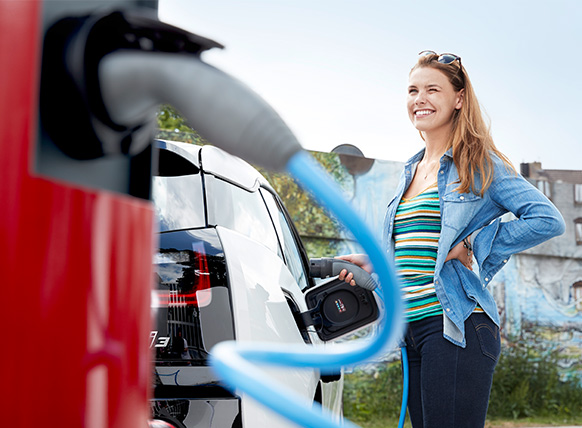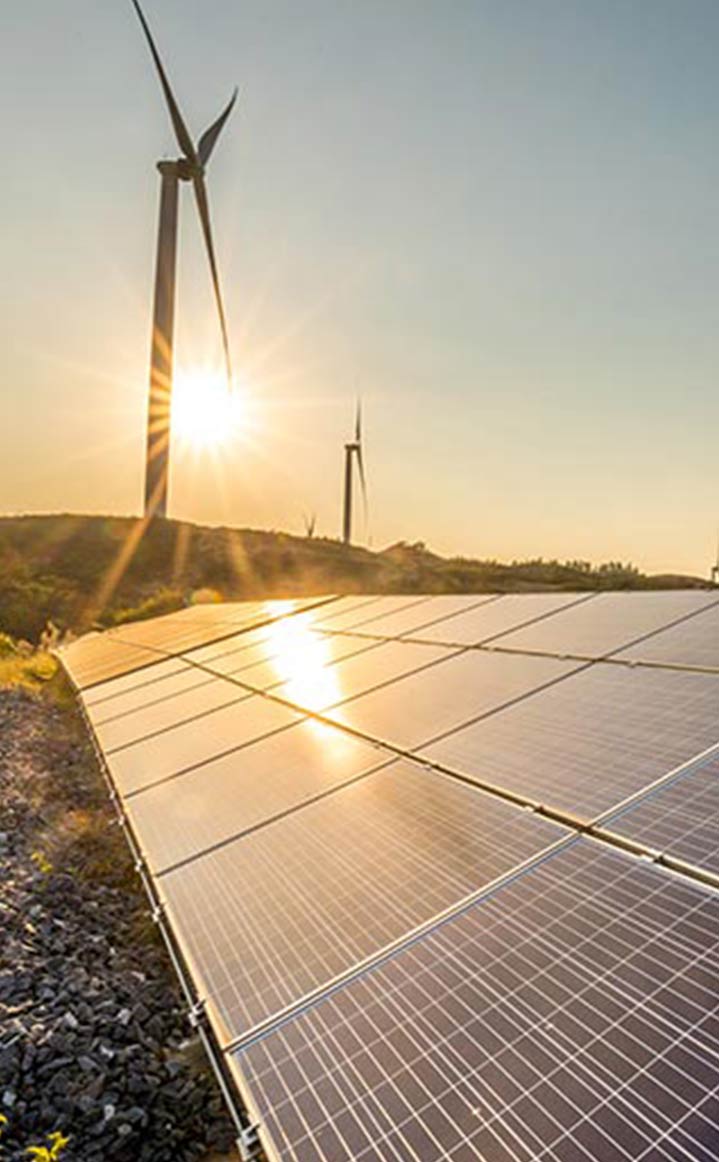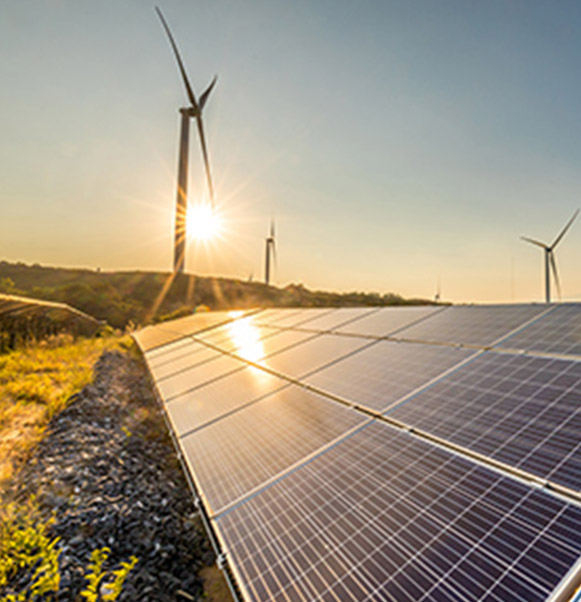

What will the UK's net zero targets mean for you?
In 2019, the UK was the first major economy to pass a law to become a net zero emissions economy by 2050.
As the impact of climate change, like increased heatwaves1 and flooding2, become more evident and frequent, environmental awareness is growing. The net zero move follows a wave of climate activism, but what will the 2050 target mean for someone living in the UK?


Changing how we travel
In many ways, cutting emissions will not be about changing what we do, but how we do it. So, when it comes to the future of travel, the vehicles we use to get around will be electric.
Cars, buses, trains and even ships are already in the process of being electrified, while a growing trend for 'micromobility' could see more of us travelling to work or school on electric bikes or scooters. Many of us are already embracing this move with electric vehicles now making up one in eight of all new cars registered3.
Planes are likely to continue to become more environmentally friendly too, with companies already exploring the possibility of using electric aircraft4 or biofuels5. At the same time, a growing number of people are looking for alternatives to flying, which has prompted the revitalisation of sleeper services on many European rail networks, including in France, Germany and the UK6.
And some of us might choose to reduce the amount we travel altogether. Following the past 18 months, we’re all used to virtual work meetings rather than travelling to a different city or even country and it’s likely this trend will continue7. And it’s not just business travel that’s affected – many of us are now choosing a UK staycation rather than a holiday abroad8.


Looking to our homes
The homes we live in will also need to continue to become more energy efficient – currently they are one of the UK’s largest contributors to the climate crisis. Part of this is being driven by improvements to the buildings themselves such as better insulation and improved windows. While further efficiencies will also come from the increased application of technology, ranging from solar panels and energy storage and air source heat pumps to smart meters.
Our homes will also increasingly feature smart controls for features such as heating – some of us might already use a smartphone to control our heating with a smart thermostat – and fridges that help you reduce food waste by telling you when you're running low on groceries or certain items have been in the fridge for too long.
And it’s not just our homes that are changing, our lifestyle and diets are becoming more sustainable too. Livestock farming is a major contributor to environmental emissions9 and, as a result, interest in plant-based foods and artificial meat and fish has been growing rapidly.


Renewable electricity at home
In the future, more and more of our electricity will come from renewable sources, as coal-fired power stations are phased out and more solar and wind farms are built.
More and more of us are already choosing to power our homes renewably. We provide all our customers’ homes with 100% renewable electricity as standard10 and install solar panels and battery storage to enable you to generate your own renewable power.
The way we heat our homes will change as well. To reach the 2050 target, we’ll have to move away from gas-fired boilers and central heating systems. Instead, we’ll need to move towards low carbon heating options such as heat pumps, fuel cells and hydrogen.
It’ll be a long journey to achieve the UK's net zero target, but we’re committed to playing our part and helping our customers do the same. Each small step can and will make a difference.
Learn more about the changes needed in our homes, our businesses and our city infrastructures to reach a net zero future in our Carbon Countdown report and learn more about how you can take climate action now.
1. The Independent: Is the climate crisis causing more heatwaves?
2. WWF: The effects of climate change
3. UK Government press release, 27 June 2019
4. BBC: The largest electric plane ever to fly
5. The Guardian: Boeing says it will make planes able to fly on 100% biofuel by 2030
6. The Guardian: New network of European sleeper trains planned
7. Nature: Rethinking travel in a post-pandemic world
8. Conde Nast Traveller: 5 trends that will change the way we travel after coronavirus
9. The Guardian: Food strategy for England calls for big cut in meat consumption
10. Electricity backed by 100% renewable sources. E.ON's renewable generation assets, agreements with UK wind generators and the purchase of renewable electricity certificates. The electricity supplied to your home comes from the National Grid and DNOs. eonenergy.com/renewable


Our blog
Read our latest blogs to discover how E.ON is leading the energy transition through smart and sustainable solutions.


The advantages of renewable energy sources
Discover a list of advantages of renewable energy, types of renewable energy sources and how we’re working towards a sustainable future.


10 ways to reduce your carbon footprint
From small tweaks to your daily routine to bigger lifestyle changes, there are many ways to reduce your carbon emissions and achieve a low carbon footprint.
